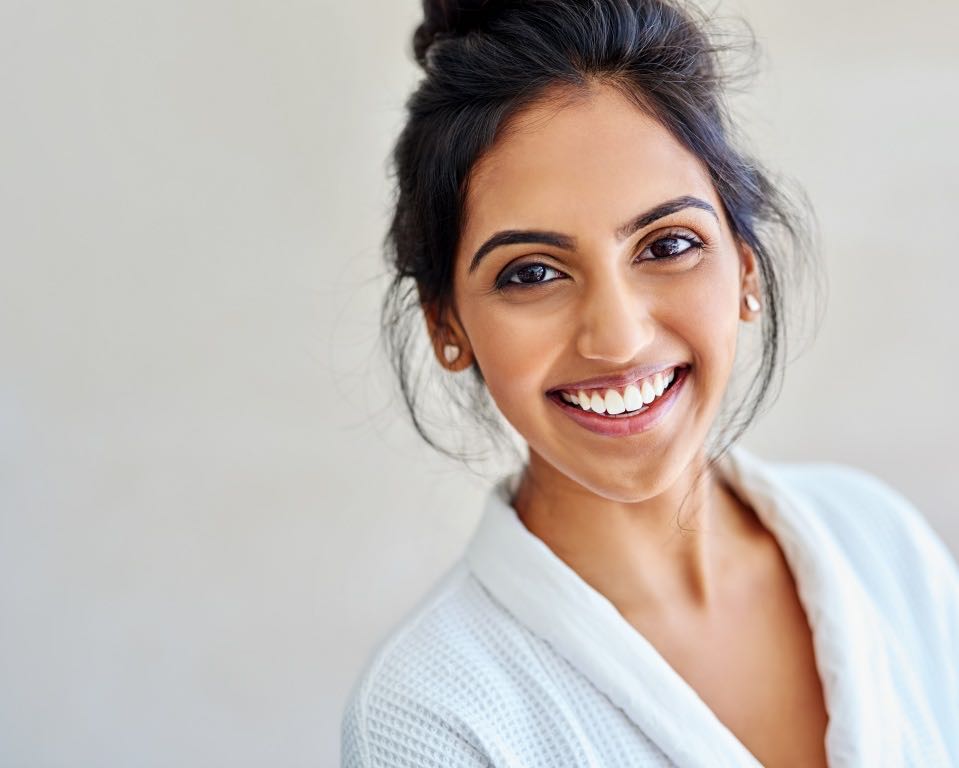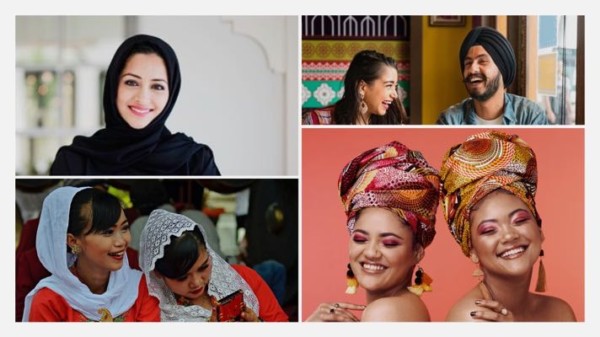According to the Pew Research Center, the U.S. Asian population grew 72% between 2000 and 2015 (from 11.9 million to 20.4 million), the fastest growth rate of any major racial or ethnic group. The largest groups are of Chinese, Indian and Filipino origin. Often this statistic is usually thought of as the AAPI (Asian America, Pacific Islander) population however there is another subset that should be addressed.
The MENA (Middle East and North Africa) or WANA (Western Asian and North African) population within the US is estimated at 5 million people and had a growth rate of 36% at last true measurement in 2016.
For instance, the Muslim population is set to grow significantly faster than the world’s total population, yet this market remains very under-served. As we extend the US multi-racial beauty conversation, let’s work to understand how to address these consumer subsets needs also.
What does this all MENA?

Many people across the Western Asia and North Africa regions wear head coverings in one way or another as a sign of faith, status, modesty, mourning, or tradition. Others have what seems like mythically long, smooth, and lustrous locks of the richest hues that is don no headpiece. For either option, these consumers have thick strands with varying densities. So, What are they looking for in hair care products?
Low-maintenance, holistic rituals.
For many of these consumers, their routines have consisted of basic shampooing and oiling (the process of coating and combing through oil on dry hair, followed by a cold rinse, to restore essential oils) as a pre and post shampoo process. As this routine is minimal but highly regarded, products that are multi-functional with recognizable ingredients are how to capture these consumers.
Protective Styling of Strands for Shape
Hair is often styled in braids to ensure nourishment and protect strands. Aiding in shape retention without heat is an ideal product for when releasing braids or heatless curlers.
Start with ingredients that provide light moisturization, prevent static and frizz to help to keep hair manageable and most importantly healthy. Consider also ingredients that allow for Vegan and Halal Claims.
| Ingredient | Benefit |
|---|---|
| Luviquat Excellence | Provides maximum conditioning, improves wet combability and reduces static on dry hair. |
| Luviquat UltraCare AT 1 | Excellent wet and dry hair combability, reduces irritation potential of surfactants, and creates smooth silky feel on hair without build-up |
| Luviquat PQ 11 AT 1 | Provides strong setting properties plus conditioning, while reducing damage to surface of hair by coating it. |
| Dehyquart GUAR HP | High conditioning performance for medium to thick hair, superior wet and dry nombability and positive influence on anti-hair breakage |
| Plantasil Micro | An optimized blended surfactant-oil system that synergistically improves conditioning performance in rinse-off formulations when combined with cationics |
| Hair Oleobooster | Micro-structured oil-based extract derived through a sustainable éco-extraction process |
| Cetiol C 5 | A naturally-based, light, and fast-spreading emollient for skin care and color cosmetics applications |
Formulations to Address Moisturization, Static, Combability, and Styling Together
- Pearlescent Hair Mask
- Powdered Hair Styling Aid with Dry Water
- Moisturizing hair styling powder with AEROSIL® R 812 S
Protective Styling of Strands for Shape
Hair is often styled in braids to ensure nourishment and protect strands. Aiding in shape retention without heat is an ideal product for when releasing braids or heatless curlers.
Address the Headdress

Populations stemming from the WANA/MENA regions are not the only groups to wear head covering, in fact across North America, there are 574 federally recognized Indian Nations (Indigenous people) many of who wear traditional or ceremonial headdress. In addition across Africa, people have worn and brought with them head wraps also known as Yorubas/Angeles/doek/dukus. The pieces are worn in the Americas as fashion statements, as a marker of communal identity and pride, to protect the hair and scalp or to avoid styling the hair. Read more about that here
Provide added benefits through concepts that address the effects of covering the hair such as greasiness, odor, static and flat hair allow for a more comprehensive product selection. Appropriate solutions can be leave-in products that moisturize the hair throughout the day, as well as products such as mists that provide freshness and fragrance for the covered hair.
There is also an opportunity for products that refresh the scalp, such as hair masks or night repair creams to provide nourishment and rejuvenation to the scalp.
Ingredients
Emphasize the simplicity of formulas, yet also the efficacy while keeping convenience and light textures front and center. Dry shampoo and Dry conditioner fit in perfectly here. In fact, only 29% of all US consumers have not tried but are interested in trying Dry Conditioners while only 22% use leave-in conditioners.
Ingredients
For more on the needs of Finer Dark Straight Hair, generally found within the AAPI Population head on over here.










